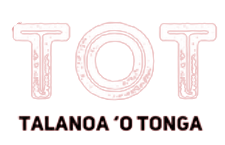A standoff between the Prime Minister’s Office and the King’s Privy Council in its advisory capacity has put the two highest political powers, the Prime Minister and the Monarch, in what could be a serious constitutional conflict in Tonga.
This came about when the Prime Minister’s Office received a letter from the Privy Council advising the Chief Secretary and Secretary to Cabinet that the King no longer has confidence and consent to the appointment of two Ministers: the Minister for the Armed Forces, which is held by the Prime Minister Hu’akavameiliku; and the Minister of Foreign Affairs held by Hon. Fekita ‘Utoikamanu.
This letter which was circulated on 2 February did not seem to have any effect in the duties carried out by the current Minister of Foreign Affairs, who was on hand on 6 & 7 of February to welcome and meet with New Zealand’s Deputy Prime Minister and Minister of Foreign Affairs Hon. Winston Peters.
In the meantime reactions from the Prime Minister’s Office have revealed that the Attorney General advised the Cabinet that it would be unconstitutional for the Monarch based on Clause 51 (3) to withdraw the appointment of a Minister without the consent and suggestion from the Prime Minister.
The role of the Attorney General as legal advisor to the Government has also raised a conflict of interest issue since she is also a member of the King’s Privy Council that sent the letter to the Cabinet.
Under Clause 39 of the Constitution however, international treaties and agreements require royal consent.
There is dissent among the public that may not be helpful in resolving the situation. There are those who pull strongly on the side of the Monarch and His Advisors, declaring that “we may need to return to pre-2010 status” when the Monarch held almost absolute authority.
Yet the majority seems to be calling for the country’s Constitution to be honored. Going back to pre-reform status is not an option. Tonga, as one commentator said is a “Constitutional Monarchy” rather than an absolute one.




